- IDPs in Kyauktaw struggle with collapsing shelters amid aid shortages
- Travel restrictions deny Arakanese youth access to higher education
- Motorists fined K30,000 for traffic violations in AA controlled areas
- Inmates escape from Kyaukphyu Prison amid heightened security
- Arakan farmers struggle as paddy market collapses, debts mount
Tatamadaw’s refusal existence of AA in Arakan State hinders attempt to ink bilateral agreement
The attempt to ink a bilateral ceasefire agreement between the Tatmadaw and the Arakan Army has been foiled because the Tatmadaw has refused to acknowledge the presence of the AA in Arakan State, the AA’s spokesperson Khaing Thukha told the DMG.
24 Jul 2019
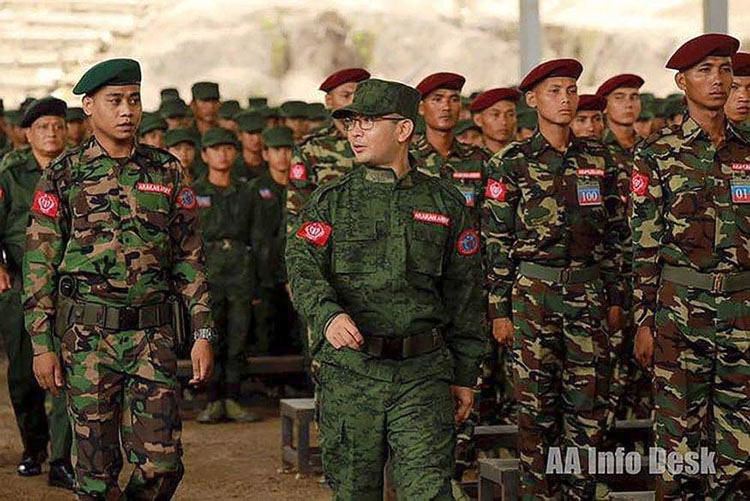
Phadu Tun Aung | DMG
23 July, Sittwe
The attempt to ink a bilateral ceasefire agreement between the Tatmadaw and the Arakan Army has been foiled because the Tatmadaw has refused to acknowledge the presence of the AA in Arakan State, the AA’s spokesperson Khaing Thukha told the DMG.
The Tatmadaw’s rationale has been to recognize the AA’s presence in Laiza, Kachin State, which deviates from the peace-making process, Khaing Thukha said, adding that peace talks could move forward when the Tatmadaw acknowledges that the AA received support of Arakanese people.
“The main obstacle of reaching a bilateral ceasefire agreement hinge upon their (Tatmadaw) attitude. They do not accept the presence of the AA in Arakan State. For us, the AA should be in Arakan State. It is a bone of contention for both sides,” he said.
“If we are unable to reach an agreement about the deployment of troops, we cannot not move forward to make peace. Both sides will be at loggerheads if the Tatmadaw remains pigheaded to acknowledge the AA’s presence in Arakan State and only accepts their existence in Laiza.”
He suggested to take the people’s desire into consideration to make peace in the region.
“They said the government represents all people in a democratic country. If all Arakanese people fully support the AA with their hearts and minds, they need to respect the people’s desire. If so, both sides can negotiate a ceasefire agreement. Otherwise, the peace process remains stagnant,” he insisted.
The ceasefire proposal of the Northern Alliance was submitted to the National Reconciliation and Peace Center (NRPC) on 30 April in order for all concerned parties to sign the bilateral ceasefire agreement.
“If we cannot resolve our political differences, clashes can kick off anytime during the ceasefire agreement. First, we must call for an immediate cease fire wherever our troops are. Then, both sides should sit down and constructively negotiate so there are mutual agreements. Afterwards we must build and nurture mutual trust and acknowledge each other’s wishes and desires, then, and only then we can talk politics,” Khaing Thukha said.
U Maung Maung Soe, a political analyst, said both the Tatmadaw and the AA find it problematic to sign a bilateral ceasefire agreement because of the dissent between them on deployment of troops that would result in new clashes in the region.
The number of IDPs in Arakan State has now reached over 50,000 because of the ongoing clashes between the Tatmadaw and the AA that started since early December last year.
The intensifying clashes have been occurring recently in Ann, Myebon and Rathedaugn Townships which have ramped up the number of IDPs in the region.




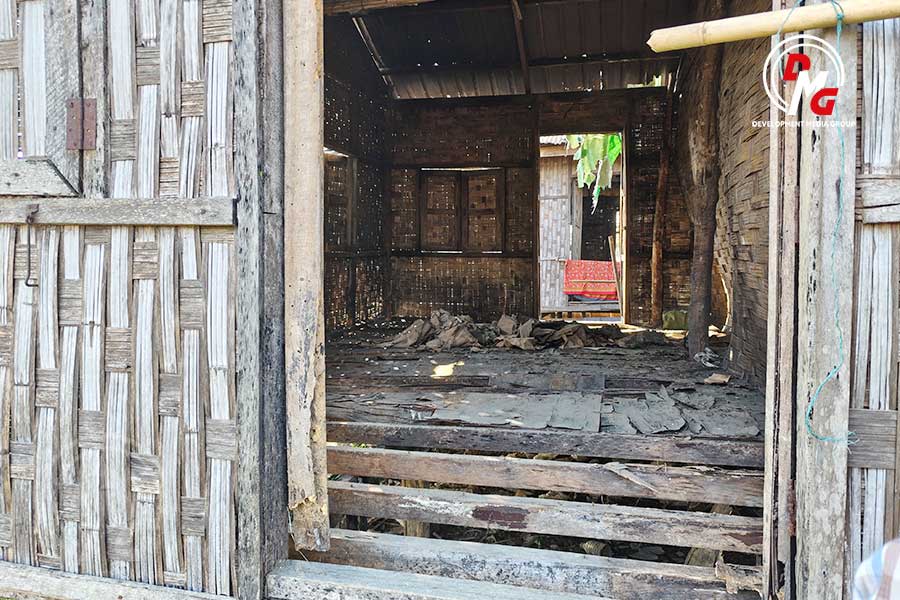
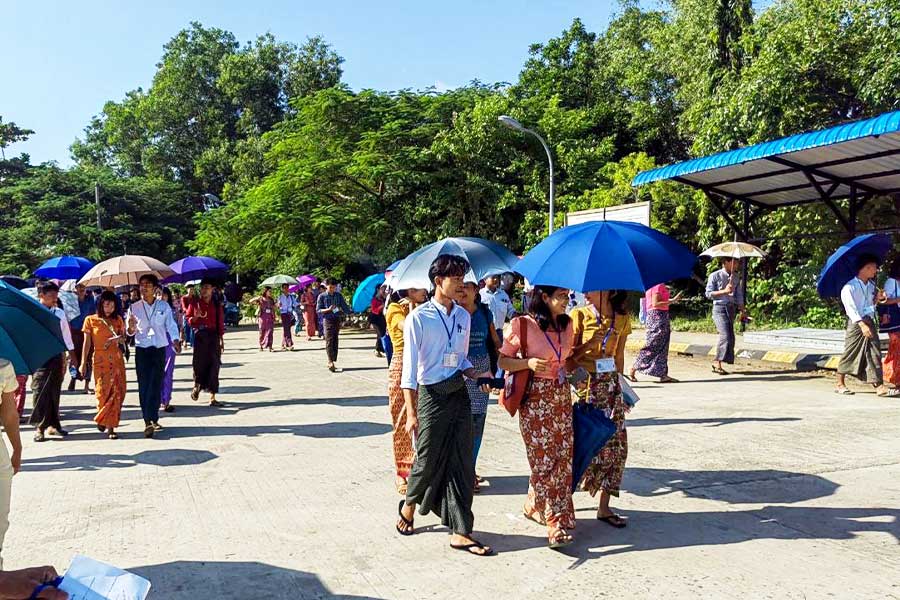
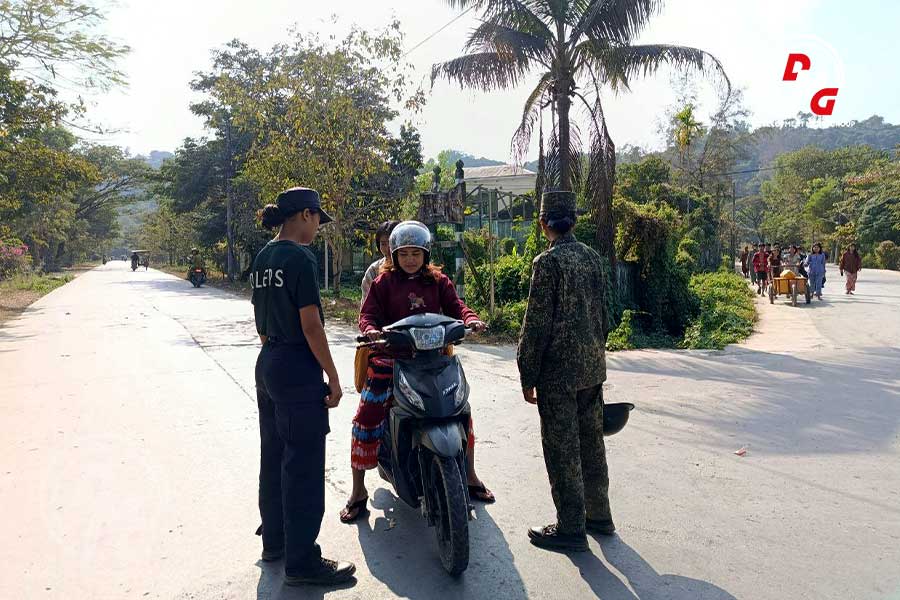
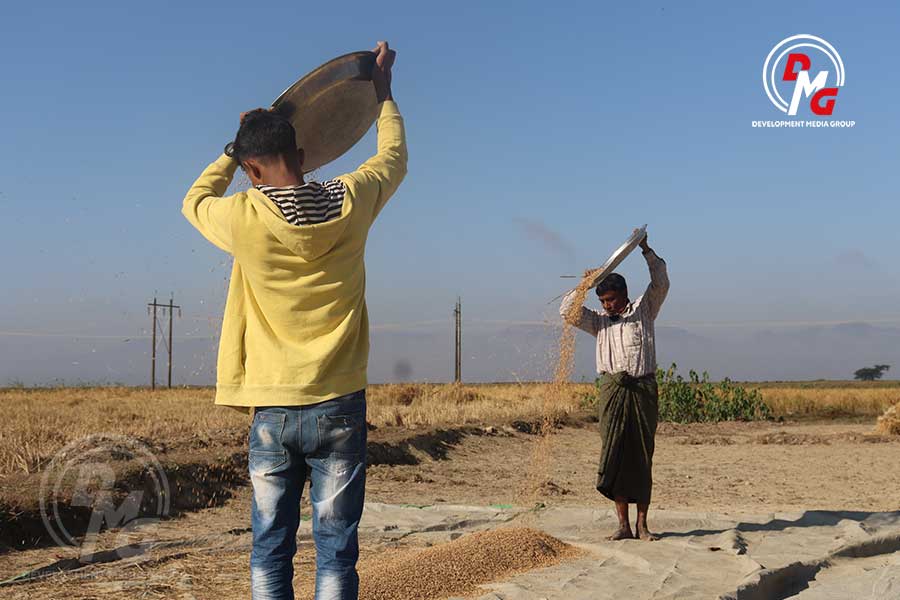
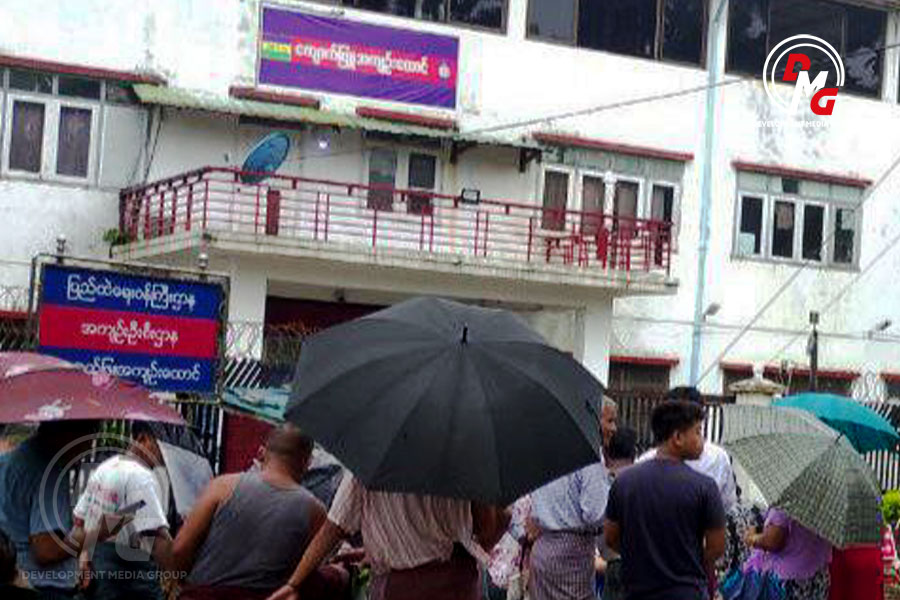







.jpg)
